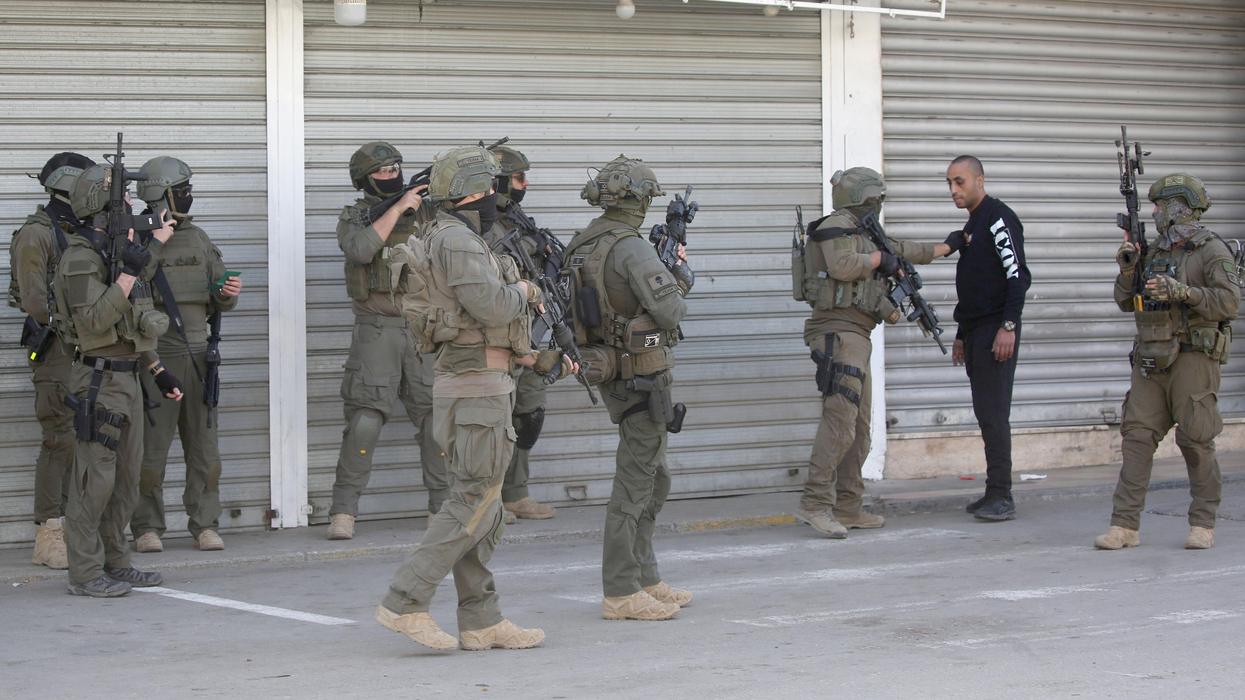President Joe Biden recently appointed Victoria Nuland, Dick Cheney’s point person on Iraq, acting deputy secretary of State, the department’s number two official. He named Elliott Abrams, convicted perjurer and grim apologist for Central American torturers under Ronald Reagan, to his Advisory Commission on Public Diplomacy.
Meanwhile, Bill Kristol, perfervid lobbyist for the Iraq War, cadged $2 million to pay for TV ads urging Republicans to stay the course in Ukraine. War may or may not be the health of the state, but surely it is a tonic for neo-conservative armchair warriors.
In the White House, while Biden has touted a new “foreign policy for the middle class,” his policies have largely been a reversion to the ruinous policies of the foreign policy establishment and its belief in America’s benevolent hegemony.
Once more America is described as the indispensable nation. Once more officials preach about a “rules-based order” that they invoke and violate at will. Once more we’re summoned to a global struggle between democracy and authoritarianism. We’re waging a proxy war with Russia in Ukraine while simultaneously gearing up for a Cold War with China, imposing economic sanctions on 26 countries, maintaining over 750 bases in 80 countries, and dispatching forces to over 100 countries and across the seven seas.
While Biden has rejoined the Paris Climate Accords, his climate czar, John Kerry, has virtually disappeared amid the geopolitical fixations. Biden’s turn from Trump’s heresies was largely to reassert the old (and discredited) establishment gospel.
His appointments reflect the policy. The leaders of his foreign policy team — Secretary of State Antony Blinken and national security advisor Jake Sullivan — are veterans implicated in the failures of the past. The hawkish Blinken was an ardent champion of the Iraq War, surely the most disastrous adventure since Vietnam. Sullivan, Hillary Clinton’s favorite strategist, was instrumental in the Libyan debacle, which he exuberantly framed as an example of the “Clinton doctrine’ before it left Libya in violent chaos. And now, even the most rabid neocons are back in the saddle.
After the Iraq debacle, one would have thought these ideologues had, in James Fallows’ words, “earned the right not to be listened to.” They would be retired in disgrace, left to write their memoirs and apologias in deserved obscurity. Two phenomena enabled their return to establishment graces. The first, of course, was Trump — and the accompanying Trump derangement syndrome. The neo-conservatives in particular were welcomed back into the establishment embrace when, with few exceptions, such as Abrams who served as Trump’s point in the madcap effort to bring down the Venezuelan government, they broke with Trump and issued furious denunciations of his “isolationist” America first rhetoric.
The second salve for their fortunes was Russia’s invasion of Ukraine. All of their Cold War tropes were given new life: Putin was evil; if not stopped in Ukraine, he would move on to Poland or the Baltics; only military defeat could deter him. American responsibility for the events that led up to the war — the extension of NATO to Russia’s borders, the scornful dismissal of Russian warnings (across the political spectrum) against including Ukraine in the bloc, the meddling in Ukrainian politics (most notably by the egregious Nuland) — was immediately forgotten or dismissed as irrelevant.
The perils of this resuscitation of the U.S. war party are apparent in Ukraine. Neo-conservatives like Max Boot and Eliot Cohen now assail the administration for its caution in arming the Ukrainians, arguing that Putin’s red lines can be safely ignored and that we should supply Ukraine with the arms needed to bomb Russia and Crimea directly. Russia must be not merely defeated but routed.
As Cohen put it in the Atlantic, “we need to see masses of Russians fleeing, deserting, shooting their officers, taken captive, or dead. The Russian defeat must be an unmistakably big, bloody shambles.”
As the Ukraine war has fallen into a brutal and bloody stalemate, the administration has slowly acceded to the calls for escalation — sending tanks, then cluster bombs, then approving F-16s via allies, with longer range missiles soon to follow. It is a course that bets much on the restraint of a leader we’re told is a madman.
The broader implications are even more ominous. Biden has revived the rhetoric and the ambitions of American exceptionalism. The U.S. will sit at the head of every table; we will define the rules — and police them across the world.
As Robert Kagan, Nuland’s husband and leading neo-conservative pundit, puts it, “Superpowers don’t get to retire.” Kagan asserts baldly what this crew believes: “The time has come to tell Americans that there is no escape from global responsibility…the task of maintaining a world order is unending and fraught with costs but preferable to the alternative.”
In reality, the time has come for a brutally honest assessment of the growing costs and increasing perils that come from the militarization of our foreign policy and the relentless effort to police the world. As the Quincy Institute’s Andrew Bachevich puts it, “Our actual predicament derives from the less than honest claim that history obliges the United States to pursue a policy of militarized hegemony until the end of time. Alternatives do exist.”
Unfortunately the Biden administration appears committed to the war party’s failed playbook of the past, and the rising costs of a global policy we neither need nor can afford.- 'New Right' takes it back to old pre-neocon roots, starting with Ukraine ›
- Antony Blinken and the diplomacy deficit - Responsible Statecraft ›
- Victoria Nuland never shook the mantle of ideological meddler | Responsible Statecraft ›
- Biden's 'leadership' is blowing the lid off two wars | Responsible Statecraft ›
















